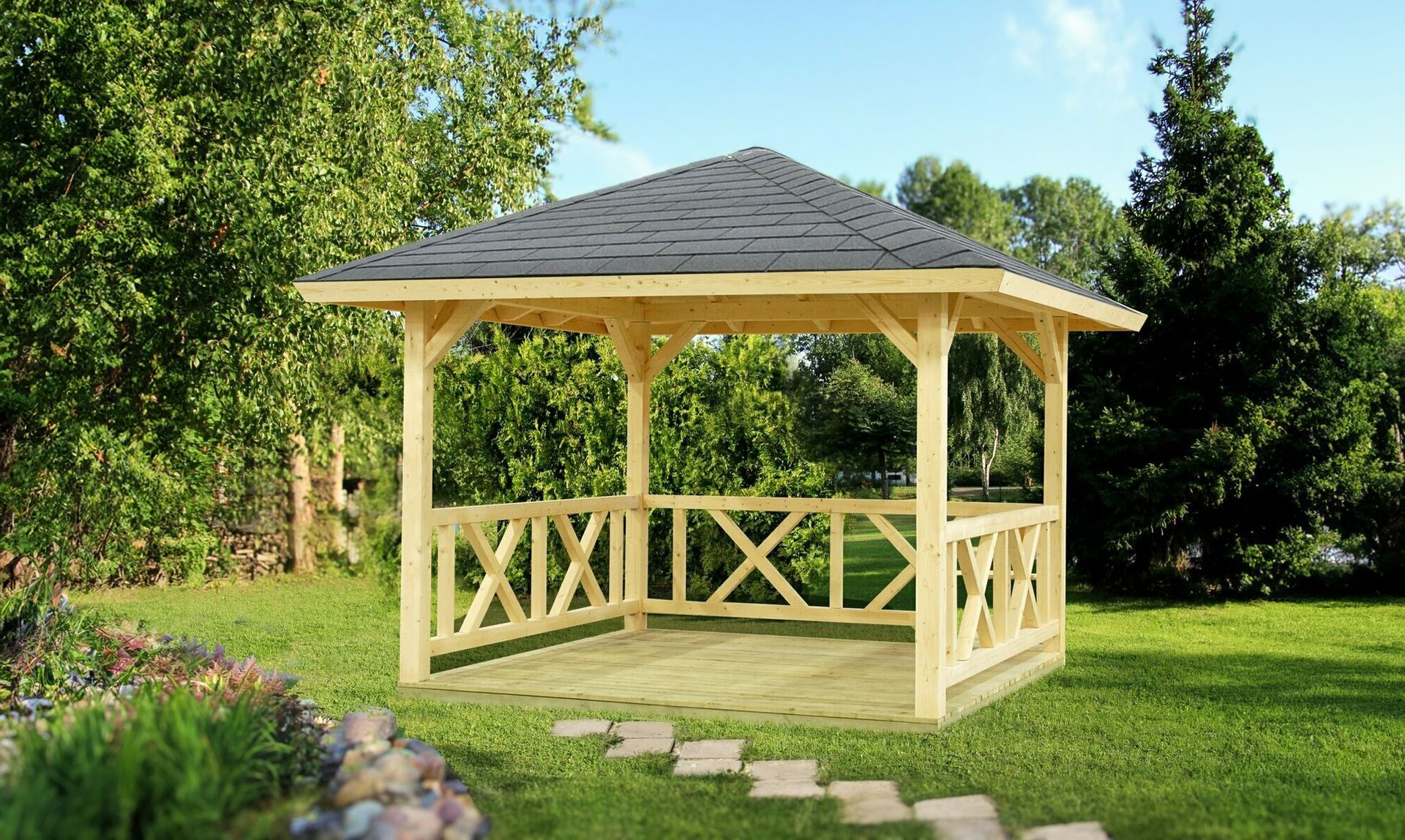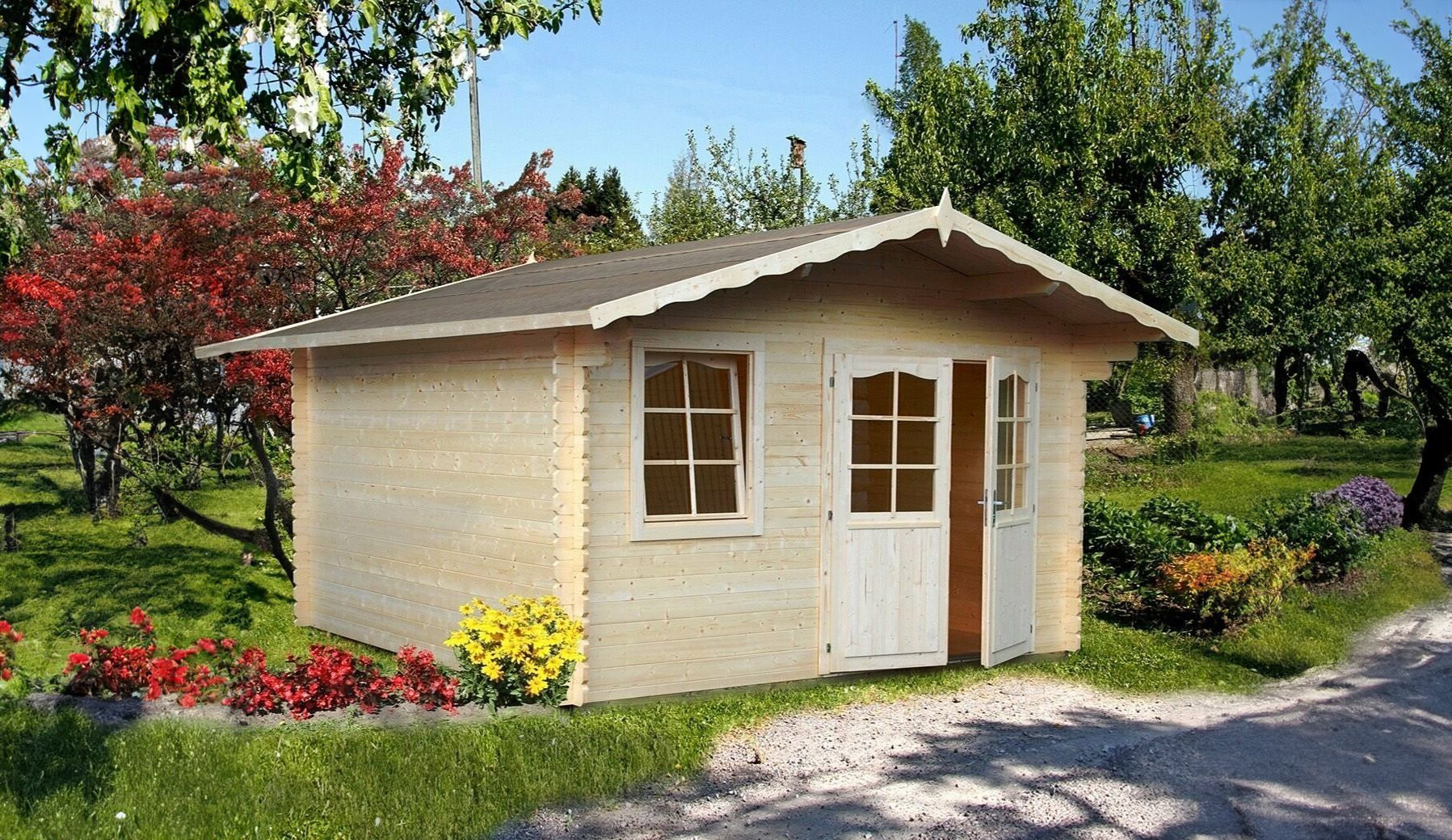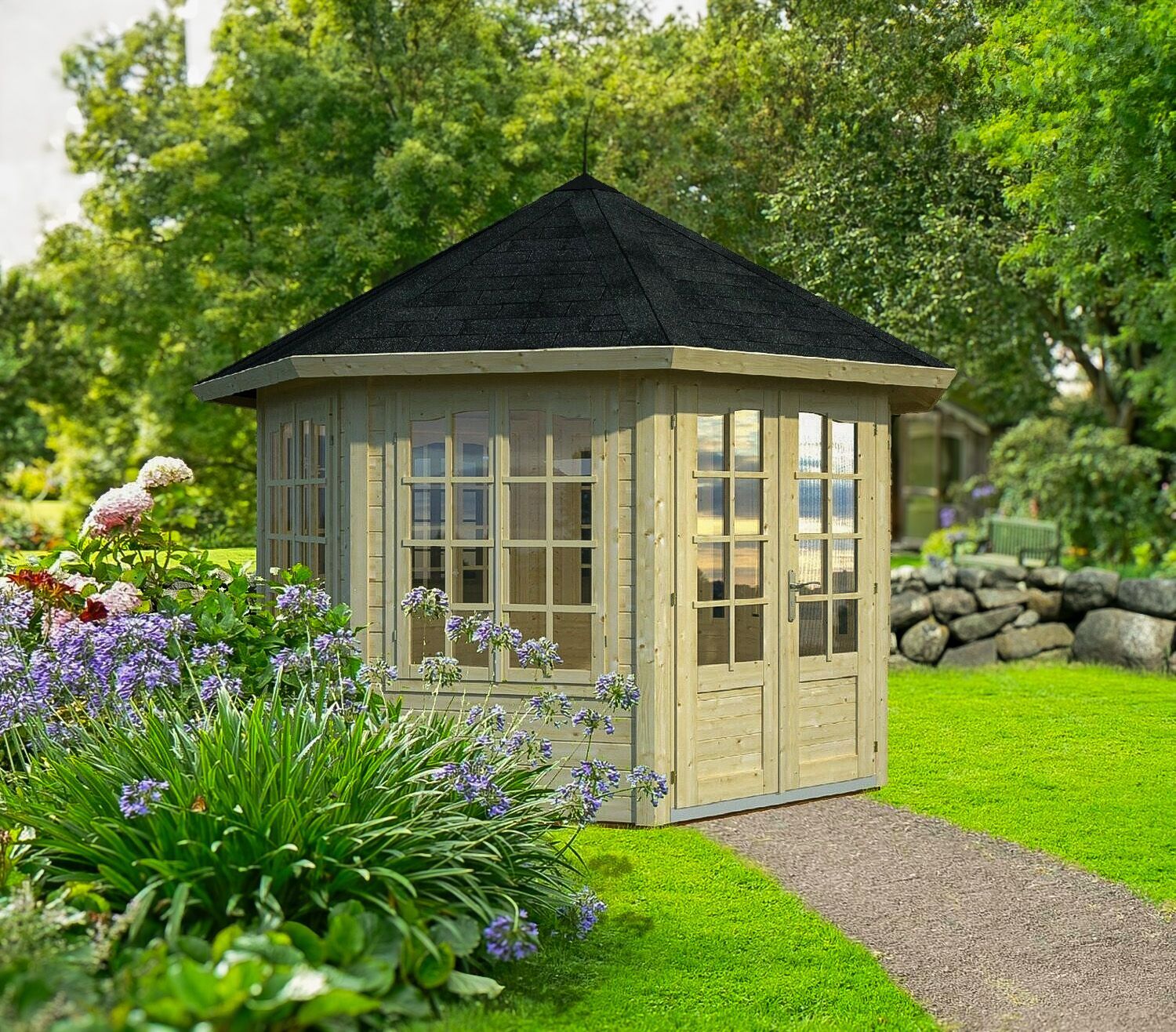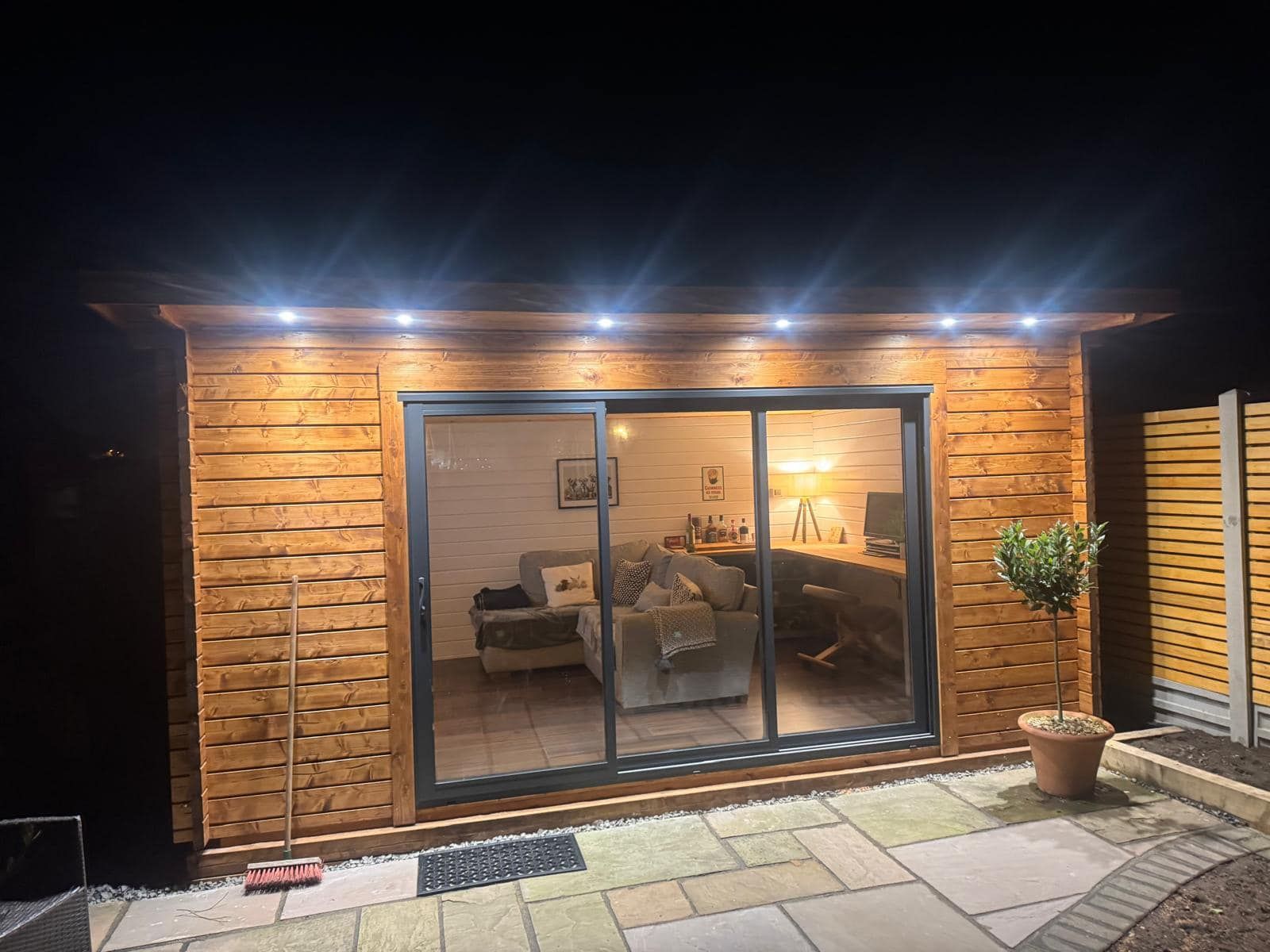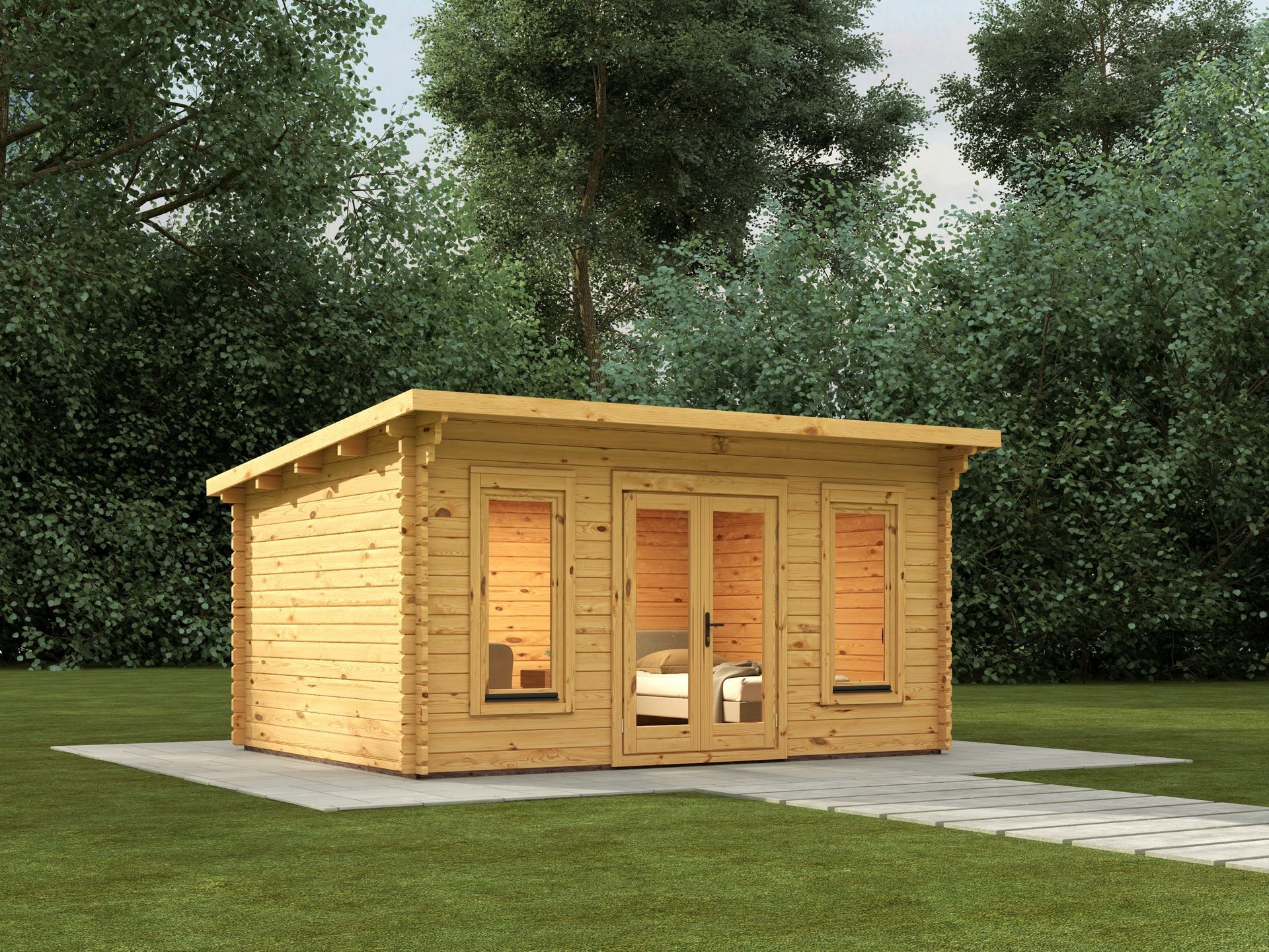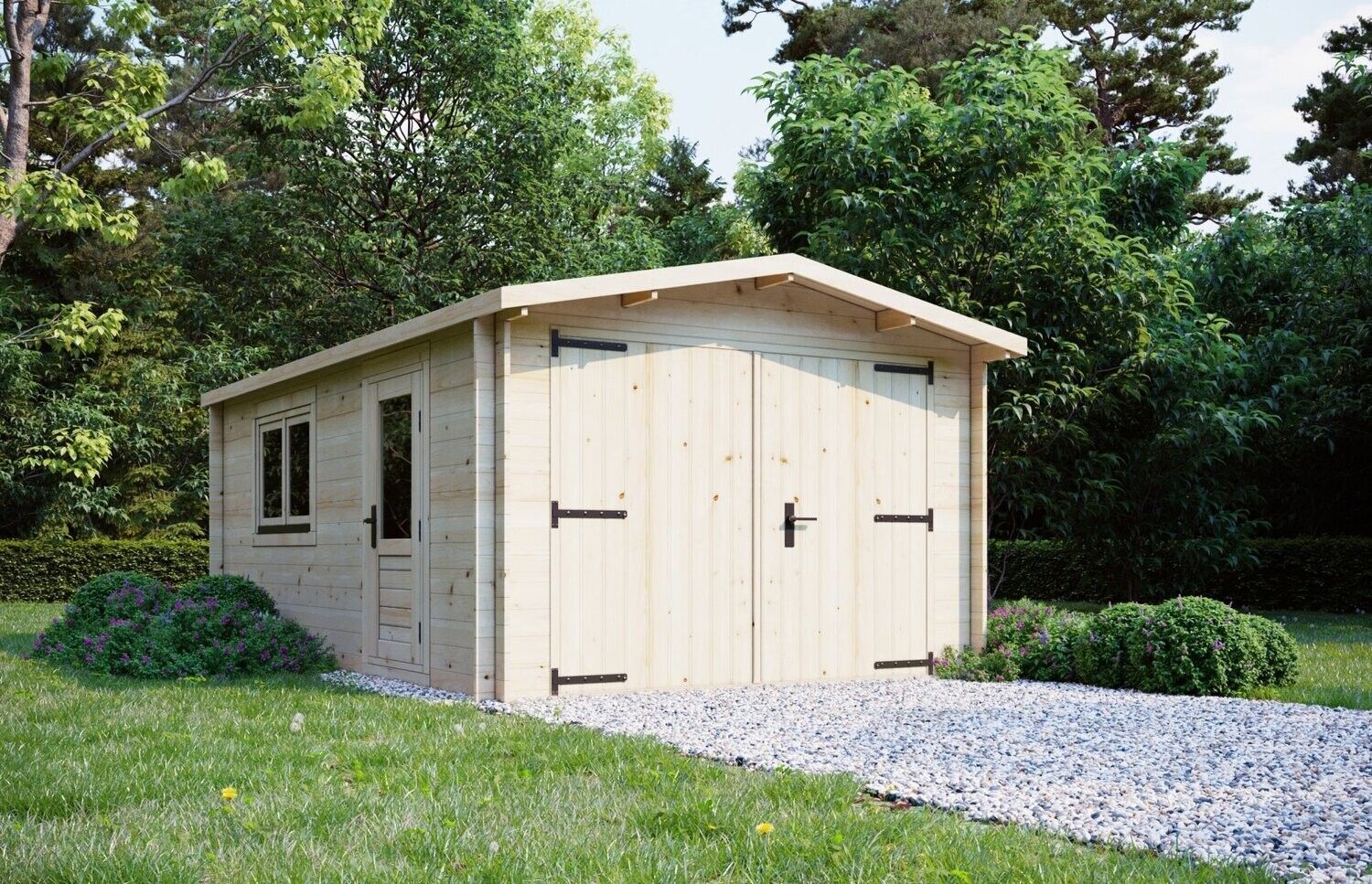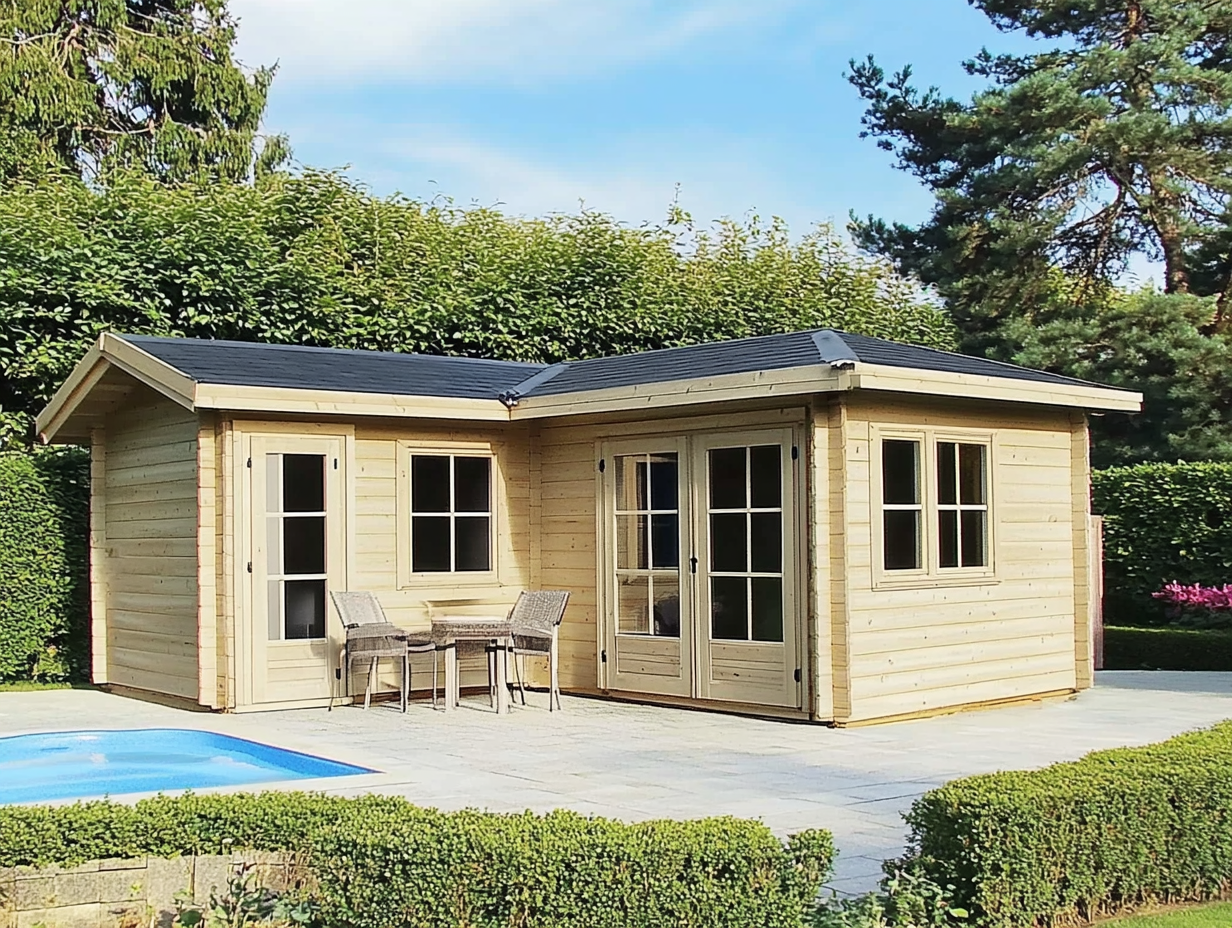Residential Log Cabins: Comfortable and Eco-Friendly Living
Experience the perfect harmony of tradition and sustainability with residential log cabins. Beautifully designed using natural and eco-friendly materials, these homes not only capture the rustic charm of countryside living but also cater to modern, green lifestyles. At Log Cabin Store, we combine craftsmanship with cutting-edge energy-efficient features to bring you log cabins that offer comfort, durability, and environmental stewardship.
Whether you're looking for a cosy retreat, a family home, or an off-grid haven, our range of cabins redefines what it means to live sustainably. Here's your guide to discovering why a log cabin could be your next dream home.
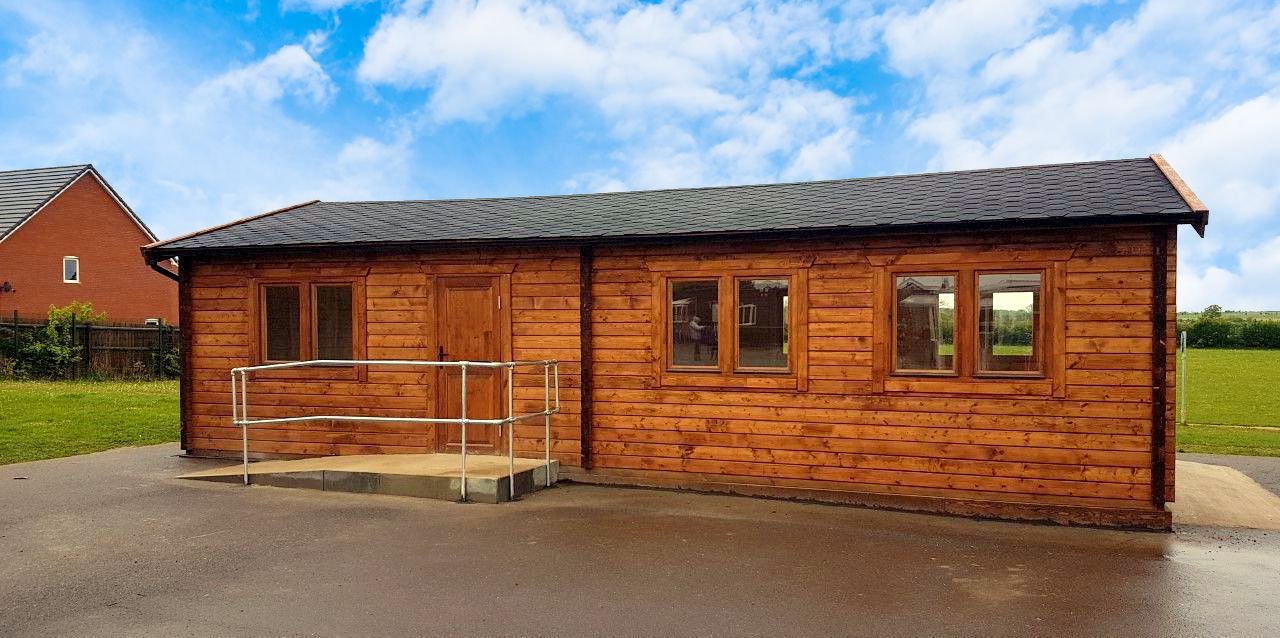
Residential log cabins combine traditional craftsmanship with modern eco-friendly materials and techniques, creating comfortable and environmentally responsible homes. High-quality, sustainably sourced logs and advanced joinery systems guarantee durability. With features like energy-efficient insulation and renewable energy systems, log cabins offer a sustainable living option. As interest in eco-friendly living grows, exploring the latest innovations and designs in residential log cabins can reveal a wealth of possibilities for those seeking a harmonious balance between comfort and environmental stewardship.
Key Takeaways
- Log cabins use sustainable materials like wood and stone.
- Eco-friendly designs reduce environmental impact and carbon footprint.
- Renewable energy sources power log cabins efficiently.
- Natural materials improve indoor air quality and humidity.
- Log cabins promote simple, connected lifestyles in nature.
Log Cabin History
The history of residential log cabins is a rich and varied one, with its origins dating back to ancient civilisations in Europe and Asia, where people's primitive dwellings were often constructed from locally sourced logs.
This traditional building method has evolved over time, with various cultures incorporating their own unique techniques and materials. In Scandinavia, for example, log cabins were built using interlocking notches to create sturdy and weather-tight structures.
The use of log cabins as residential dwellings has continued to the present day, with modern designs incorporating innovative materials and construction methods.
Advances in technology have enabled the development of precision-cut logs and specialised joinery systems, allowing for the creation of complex and intricate designs.
Additionally, the use of computer-aided design software has enabled architects to optimise log cabin designs for energy efficiency and sustainability.
As a result, residential log cabins have become a viable option for those seeking a unique and environmentally conscious living space.
Eco Friendly Materials
Several key factors contribute to residential log cabins being considered eco-friendly, primarily due to their use of natural, sustainable materials. The primary building material, wood, is a renewable resource that can be harvested and replenished over time.
Additionally, log cabins often incorporate other eco-friendly materials, such as low-VOC paints, sustainable roofing materials, and energy-efficient insulation. The use of reclaimed or recycled materials is also common in log cabin construction, reducing waste and minimising environmental impact.
The eco-friendly materials used in log cabins not only reduce environmental harm but also provide a healthier living space. Natural materials like wood and stone promote good indoor air quality and can help regulate humidity levels.
Moreover, the use of sustainable materials can also contribute to energy efficiency, reducing the need for heating and cooling. By incorporating eco-friendly materials into their design, residential log cabins offer a unique combination of comfort, sustainability, and innovation, making them an attractive option for those seeking an environmentally conscious living solution.
This approach to construction highlights the potential for log cabins to be a viable eco-friendly housing option.
Sustainable Living Options
Eco-friendly materials play a considerable role in establishing residential log cabins as a sustainable living option, and this foundation supports a broader range of sustainable living possibilities. The use of natural and renewable resources, such as reclaimed wood and low-VOC paints, minimises the environmental impact of these structures.
Additionally, log cabins can be designed to incorporate permaculture principles, maximising the use of available space and promoting biodiversity.
Sustainable living options in residential log cabins also extend to waste management and water conservation. Implementing graywater systems and composting toilets can greatly reduce water consumption and waste output.
Moreover, log cabins can be designed with integrated gardening systems, allowing residents to grow their own food and reduce their reliance on industrial agriculture.
By incorporating these sustainable features, residential log cabins can provide a unique and innovative approach to eco-friendly living, one that prioritises both environmental sustainability and resident well-being.
This approach enables residents to live in harmony with their surroundings.
Energy Efficient Homes
Most residential log cabins can be designed to achieve exceptional energy efficiency, largely due to their ability to incorporate various sustainable design elements and materials. This is made possible through the use of high-performance insulation, advanced window technologies, and optimised building orientations.
By strategically orienting the cabin to maximise natural daylight and solar heat gain, the need for artificial lighting and heating is markedly reduced. Additionally, the use of renewable energy systems such as solar and wind power can additionally minimise the cabin's reliance on non-renewable energy sources.
The incorporation of energy-efficient appliances and lighting systems also plays a vital role in minimising energy consumption. By specifying high-efficiency HVAC systems, water heaters, and appliances, residential log cabins can achieve notable reductions in energy consumption.
Moreover, the use of smart home technologies can provide real-time monitoring and control of energy usage, enabling occupants to optimise their energy consumption and reduce their environmental footprint. This integrated approach to energy efficiency enables residential log cabins to achieve exceptional sustainability and comfort.
Natural Building Methods
The use of natural building methods in residential log cabins offers a unique opportunity to create structures that not only minimize environmental impact but also promote a healthier living space.
Natural building methods involve the use of locally sourced, sustainable materials, such as reclaimed wood, low-carbon concrete, and plant-based insulation. These materials are often more durable and require less maintenance than traditional building materials, reducing the need for repairs and replacements.
The implementation of natural building methods also allows for improved indoor air quality, as the materials used are non-toxic and do not emit harmful chemicals.
Additionally, natural building methods can help to regulate indoor temperatures, reducing the need for heating and cooling systems.
This approach to building residential log cabins not only benefits the environment but also provides a healthier and more comfortable living space for occupants.
Log Cabin Designs
Sophisticated log cabin designs often incorporate large windows, strategically placed to maximise natural light and provide unobstructed views of surrounding landscapes. This design approach not only enhances the aesthetic appeal of the cabin but also reduces the need for artificial lighting, thereby minimising energy consumption.
The use of natural materials, such as reclaimed wood and low-maintenance exterior finishes, additionally contributes to the sustainability of log cabin designs. Open-floor plans and vaulted ceilings are also common features, creating a sense of spaciousness and airiness.
In addition, log cabin designs can be tailored to suit various climate conditions, incorporating features such as passive solar heating and cooling. The incorporation of innovative materials and technologies, like solar panels and rainwater harvesting systems, can also be integrated into log cabin designs, enhancing their eco-friendliness and energy efficiency.
Effective design strategies can optimise the performance of log cabins, making them comfortable and sustainable living options.
Green Living Benefits
Eco-friendly features in residential log cabins contribute greatly to reducing environmental impact, and by extension, offer numerous green living benefits. The use of natural and sustainable materials in log cabin construction minimises the carbon footprint associated with building and maintaining a home.
Additionally, log cabins can be designed to maximise natural light and ventilation, reducing the need for artificial lighting and heating, ventilation, and air conditioning (HVAC) systems. This not only decreases energy consumption but also creates a healthier indoor environment.
The incorporation of green technologies, such as solar panels and rainwater harvesting systems, further enhances the eco-friendly nature of residential log cabins. These features enable homeowners to generate renewable energy and conserve water, reducing their reliance on public utilities and minimising waste.
Off Grid Living
Several key factors make residential log cabins well-suited for off grid living, primarily due to their ability to be designed and constructed with self-sufficiency in mind. This allows homeowners to incorporate renewable energy systems, such as solar or wind power, and implement efficient water management systems.
Log cabins can also be built with sustainable materials and designed to maximise natural light and insulation, reducing the need for artificial lighting and heating.
Off grid living in a residential log cabin requires careful planning and consideration of energy needs.
Homeowners must assess their energy requirements and design a system that meets those needs, often using a combination of renewable energy sources.
Advanced technologies, such as energy storage systems and smart home automation, can also be integrated to optimize energy efficiency and simplify off grid living. By incorporating these innovative solutions, residential log cabins can provide a comfortable and sustainable living option for those seeking an off grid lifestyle.
Environmental Impact
As residential log cabins are designed and constructed with self-sufficiency in mind, their environmental impact is greatly reduced, particularly when compared to traditional building methods. This reduction in environmental impact is due to the use of natural, renewable, and locally sourced materials.
The design of log cabins also allows for ideal energy efficiency, minimizing the need for external energy sources.
Some key benefits of residential log cabins regarding environmental impact include:
- Reduced carbon footprint due to the use of sustainable materials
- Minimal waste generation during construction
- Low energy consumption through passive design principles
- Preservation of natural habitats and ecosystems through responsible land use.
Overall, residential log cabins offer a unique opportunity for individuals to live in harmony with the environment while minimizing their ecological footprint.
Log Cabin Construction
Log cabin construction typically involves a combination of traditional craftsmanship and modern building techniques, resulting in structures that are both aesthetically pleasing and highly durable.
The construction process begins with the selection of high-quality, sustainably sourced logs, often harvested from managed forests. These logs are then precisely cut and notched to fit together with minimal waste and maximum strength.
Advanced joinery techniques, such as dovetail and spline joints, are used to guarantee a secure and weather-tight seal. The use of natural materials, such as wood and stone, allows for a unique blend of traditional and modern elements.
Modern building techniques, including the use of advanced sealing and insulation materials, enhance the energy efficiency and comfort of the cabin.
The result is a structure that is not only visually striking but also highly functional and sustainable. This combination of traditional craftsmanship and modern innovation yields a log cabin that is both eco-friendly and comfortable.
Renewable Energy Sources
Embracing the principles of sustainability, residential log cabins can be designed to harness renewable energy sources, thereby minimizing their carbon footprint. This approach enables homeowners to reduce their reliance on non-renewable energy sources and mitigate their impact on the environment.
By integrating renewable energy systems, log cabins can become more energy-efficient and environmentally friendly.
Some of the key renewable energy sources that can be utilized in residential log cabins include:
- Solar power systems to generate electricity
- Wind power systems to produce energy
- Hydro power systems to harness energy from water
- Geothermal systems to utilise heat from the earth
These renewable energy sources can be used to power various aspects of the log cabin, from lighting and heating to cooling and appliances.
Self Sufficient Homes
Residential log cabins that incorporate renewable energy sources can further enhance their sustainability by adopting self-sufficient design principles. This approach enables homeowners to minimize their reliance on public utilities and reduce their environmental footprint.
Self-sufficient homes often feature rainwater harvesting systems, greywater reuse, and advanced wastewater treatment systems, which conserve water and minimise waste.
The integration of self-sufficient design principles with renewable energy sources creates a highly efficient and sustainable living environment. By incorporating energy-efficient appliances, advanced insulation materials, and optimized building orientations, residential log cabins can considerably reduce their energy consumption.
Additionally, self-sufficient homes can include on-site food production systems, such as greenhouses or permaculture gardens, which provide fresh produce and enhance the overall sustainability of the residence.
Log Cabin Maintenance
Numerous factors contribute to the longevity and performance of residential log cabins, with regular maintenance being an essential aspect of sustaining their durability and aesthetic appeal.
Log cabin maintenance requires a proactive approach to prevent damage and guarantee the structure remains secure and weather-tight.
Key maintenance tasks include:
- Inspecting and replacing worn-out seals and weatherstripping to prevent air leaks
- Applying protective coatings to the logs to prevent rot and insect damage
- Cleaning and inspecting the roof and gutters to guarantee proper water drainage
- Trimming surrounding vegetation to maintain a safe distance from the cabin and prevent fire hazards.
Regular maintenance helps to identify and address potential issues before they become major problems, reducing the need for costly repairs and guaranteeing the log cabin remains a comfortable and sustainable living space.
Carbon Footprint Reduction
Several factors can be considered to minimise the environmental impact of residential log cabins, particularly regarding reducing their carbon footprint.
One key aspect is the use of sustainable materials in construction, such as reclaimed or locally sourced wood, which reduces transportation emissions and supports local economies.
Additionally, incorporating energy-efficient systems, like solar panels and rainwater harvesting, can greatly decrease reliance on non-renewable energy sources.
Implementing eco-friendly insulation, like recycled denim or wool, can also minimize heat loss and reduce the need for heating and cooling.
Moreover, optimising window placement and using low-E glass can maximize natural light and reduce artificial lighting needs.
By incorporating these sustainable features, residential log cabins can achieve a substantial reduction in their carbon footprint.
This not only benefits the environment but also provides a healthier and more comfortable living space for occupants.
Sustainable design and construction methods are essential for eco-friendly residential log cabins.
Modern Log Cabins
Many modern log cabins feature innovative designs that blend traditional craftsmanship with cutting-edge technology, resulting in structures that are not only aesthetically pleasing but also highly functional and sustainable.
This fusion of old and new enables homeowners to enjoy the benefits of eco-friendly living while minimizing their environmental impact. Modern log cabins often incorporate advanced materials and techniques, such as solar panels, rainwater harvesting systems, and high-performance insulation.
Some key features of modern log cabins include:
- Advanced framing techniques for improved energy efficiency
- Sustainable materials, such as reclaimed wood and low-VOC finishes
- Integrated renewable energy systems, like wind turbines and geothermal heating
- Smart home technology for optimised energy management and monitoring.
Why Log Cabins Are Perfect for Sustainable Living
Residential log cabins have stood the test of time, evolving to meet today's growing interest in eco-friendly living. Their primary building material – wood – is a renewable resource, making these structures inherently sustainable.
1. Built for the UK Market
Cabins from Log Cabin Store are made to withstand the UK's variable climate. Insulated to keep winters warm and summers cool, they tick all the boxes for energy efficiency while blending seamlessly into natural environments. The Highgrove Log Cabin and Larchwood Range are tailored for year-round comfort.
2. Eco-Friendly Construction
Our log cabins incorporate eco-conscious materials like:
- Reclaimed or sustainable timber for the shell.
- Low-VOC paints to improve indoor air quality.
- Energy-efficient insulation, cutting down on heating bills in the long UK winters.
This commitment to green construction ensures environmental impact is minimised while maintaining high standards of comfort and durability.
3. Living Close to Nature
Research shows that homes nestled in natural surroundings – like log cabins – promote relaxation and mental well-being. Imagine sipping morning coffee in your Log Cabin, surrounded by birdsong and greenery.
By investing in a log cabin, you're adopting a lifestyle that prioritises simplicity, connection to the environment, and minimal disruption to local ecosystems.
A Look Back: How Log Cabins Became Residential Icons
Log cabins might be a modern green living solution, but they’ve been around for centuries. Across Europe – from the forests of Scandinavia to Britain’s historic countryside – early settlers relied on locally sourced timber for durable and functional homes.
In the UK today, log cabins combine traditional techniques, like interlocking notches, with modern technologies. With precision-cut logs, CAD design software, and advanced joinery, you get a structure that's weather-sealed and stunningly crafted.
Check out the Log Cabin Store – a brilliant example of timeless design meeting contemporary needs.
Innovation in Eco-Friendly Materials
Sustainable Wood as a Core Material
Wood is the backbone of log cabin construction. By sourcing timber from managed forests, Log Cabin Store ensures your home is built responsibly while promoting new forest growth.
Natural wood is also breathable, which improves indoor air quality and regulates humidity. Customers in the UK often praise the Log Homes for its warm interior and fresh ambience, thanks to the use of untreated, sustainable wood.
Low-Waste Design Approach
The cabins are crafted to minimise material waste. Where possible, reclaimed materials like stone or slate are used to blend cabins harmoniously into country gardens – so you're not only going green but creating a space that complements your surroundings.
Energy-Efficient Insulation
Modern cabins come with triple-glazed glass, thick insulated walls, and solar-compatible roofs, helping reduce your household carbon footprint drastically.
These features make cabins a top pick for UK residents looking for both charm and practicality.
How to Build Your Sustainable Dream Home
Building a log cabin offers incredible flexibility. From minimalist styles to expansive, multi-bedroom designs, there’s a cabin at Log Cabin Store for every need.
1. Design for Sustainability
- Incorporate solar-powered systems to reduce electricity costs.
- Use large windows for natural lighting. Cabins execute this beautifully.
- Aim for off-grid living with water reclamation systems – ideal for remote rural locations.
2. Live Small but Impact Big
Downsizing to a log cabin doesn’t mean giving up comfort. Open-plan interiors create versatile spaces that feel bigger without wasted energy.
3. Practical Features for Sustainable Living
Features like composting toilets, biomaterial insulation, and durable foundations ensure your cabin is eco-friendly and built to last.
Even when adding modern conveniences, sustainable solutions safeguard your home against resource inefficiency.
Extra Insights – Why Log Cabins Make Sense for Solar Living
One of the coolest features of a log cabin home is its compatibility with renewable energy. Rooftop solar panels paired with backup battery systems bring the autonomy needed for off-grid UK locations.
Imagine your Retreat running entirely on solar power – from heating to kitchen appliances. That’s sustainable luxury!
Build Your Residential Log Cabin Today
A residential log cabin isn’t just a house – it’s a reflection of your values, your commitment to sustainability, and your love for timeless design. At Log Cabin Store, we specialise in homes that respect nature while providing unmatched quality and comfort.
Start your eco-friendly living adventure today with tailored cabin options. Each cabin is a step towards a greener future – without compromising on the lifestyle you deserve.
You have 45 days to return items for a full refund, with or without a receipt. Items must still have their original tags.
Pet damage to interior surfaces is a concern, as claws and accidents can harm materials, necessitating durable, pet-friendly finishes and regular maintenance to preserve the integrity of the space.
Pest susceptibility is a concern, as untreated wood can attract insects and rodents, necessitating integrated pest management strategies and sustainable wood treatments to mitigate risks and guarantee durable structures.
Regarding special insurance requirements, log structures often necessitate unique policies, covering risks such as pest damage and natural disasters, to guarantee thorough protection for these distinctive dwellings and investments.
Investigating traditional financing, log cabins can be financed through conventional mortgages, with lenders offering specialised loan programs for unique properties, promoting sustainable and eco-friendly living solutions.
Large families can thrive in spacious, multi-bedroom log cabins, offering ample storage and adaptable floor plans, making them a viable option for expansive households seeking sustainable and comfortable living solutions.
Comment On This Log Cabin Store Post
Get your dream log cabin
Fill in the form below and we'll be in touch.
Contact Us
We will get back to you as soon as possible
Please try again later
More From the Log Cabin Store


